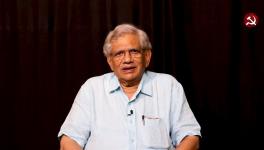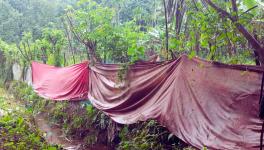Thousands Witness Annular Solar Eclipse in Tamil Nadu

The annular solar eclipse—the last one in this decade—was visible predominantly in Southern states Tamil Nadu, Kerala and Karnataka today. The Tamil Nadu Science Forum (TNSF) affiliated to All India Peoples Science Network (AIPSN) made widespread arrangements in all the districts of the state enabling people to watch the eclipse. The TNSF volunteers distributed over two lakh solar filter cards. The next annular eclipse will be visible in the state only in 2031.
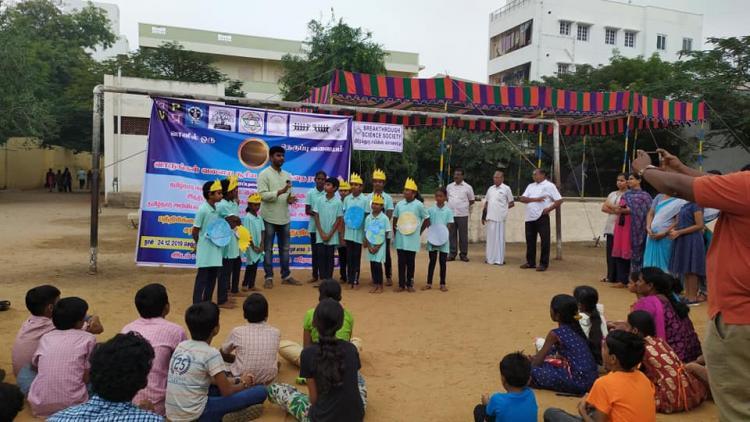
Arrangements were made by BM Birla Planetarium, Periyar Science and Technology, Chennai, Vigyan Prachar, Astronomical Society of India, Tamil Nadu Science and Technology Centre and many other voluntary organisations.
The TNSF had conducted training programmes for making of the solar filter cards as well as awareness programmes in schools and colleges against the superstitions surrounding the eclipses. Thousands of people turned up to watch the eclipse in places where the TNSF had made arrangements.
Mohana, former president of TNSF, told NewsClick, “There was heavy inflow of people to watch the annular solar eclipse today. The TNSF has been campaigning against the superstitions about the eclipse. People were afraid to come out until recently, but things have changed now. We estimate that around two crore people must have witnessed the eclipse today, which is a great achievement considering the extent of superstitions associated wit this phenomenon in the past.”
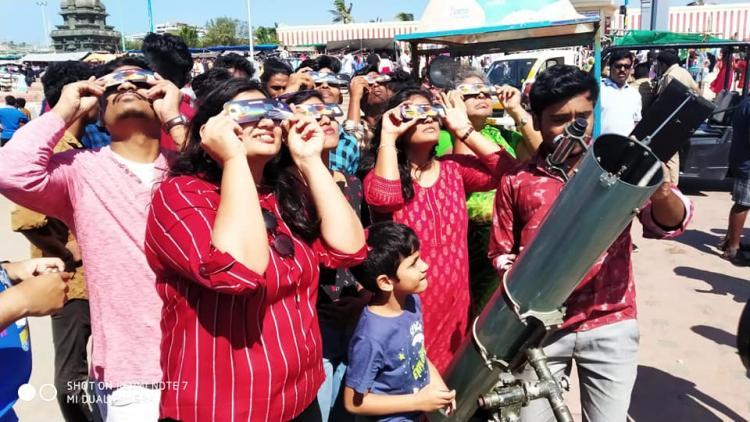
The eclipse was at its best in the hilly tourist town of Ooty (known also as Udhagamandalam) in Tamil Nadu. The eclipse was visible amidst mild cloud cover across the state; however, people from Coimbatore could not witness it. “People came out in large numbers to witness the eclipse. What was more surprising was they brought food along with them refuting the general belief that people should not consume food during the eclipse,” Mohana added.
Ahead of the solar eclipse, TNSF had held month-long awareness programmes for the students in schools and colleges across the state. “The general negative perceptionof the eclipse has been hard to break. People do not come out of their homes, eat food or even drink water. This has changed and many more things need to change too. Our campaign will continue in making people completely aware of this scientific occurrence,” said Mohana.
“Contrary to some people’s beliefs, three important scientific discoveries have happened during the eclipse. Helium was discovered in 1868. Arthur Eddington proved Einstein’s relativity theory of light during the eclipse in Gundur in 1919 and Walter Grotrian discovered the Sun’s Corona during the eclipse in 1930. So, people should understand that this event is scientific, rather than believing in legends,” said Mohana.
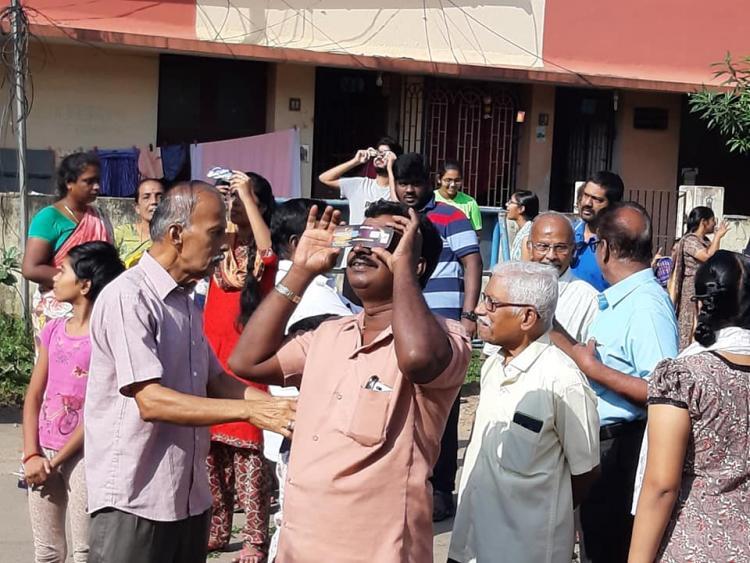
The tourist destination of Kanyakumari also saw culturally diverse people witnessing the eclipse. The ayappa devotees, tourists from other states and countries and school children participated in the event arranged by the TNSF district committee. Dominic Raj, district secretary of TNSF, said, “The people were initially hesitant to view the eclipse. When we explained, they understood the science behind this occurrence. They ate food and took bath in the sea against the general perceptions.”
Breaking the superstitious tradition, temples governed by the Tamil Nadu Hindu Religious and Charitable Endowments (HR&CE) were kept open. However, the Madurai Meenakshi Amman temple was closed till noon. This temple follows the schedule of Tirupati Tirumala temple on all eclipse days.
“During the eclipse in 1980, the government had even instructed the people to abstain from watching the eclipse, but the situation improved in the year 1995. The present year has witnessed a remarkable shift, but more campaigning is the need of the hour to overcome such unscientific beliefs and improve the scientific temper of the general public,” concluded Mohana.
Get the latest reports & analysis with people's perspective on Protests, movements & deep analytical videos, discussions of the current affairs in your Telegram app. Subscribe to NewsClick's Telegram channel & get Real-Time updates on stories, as they get published on our website.














